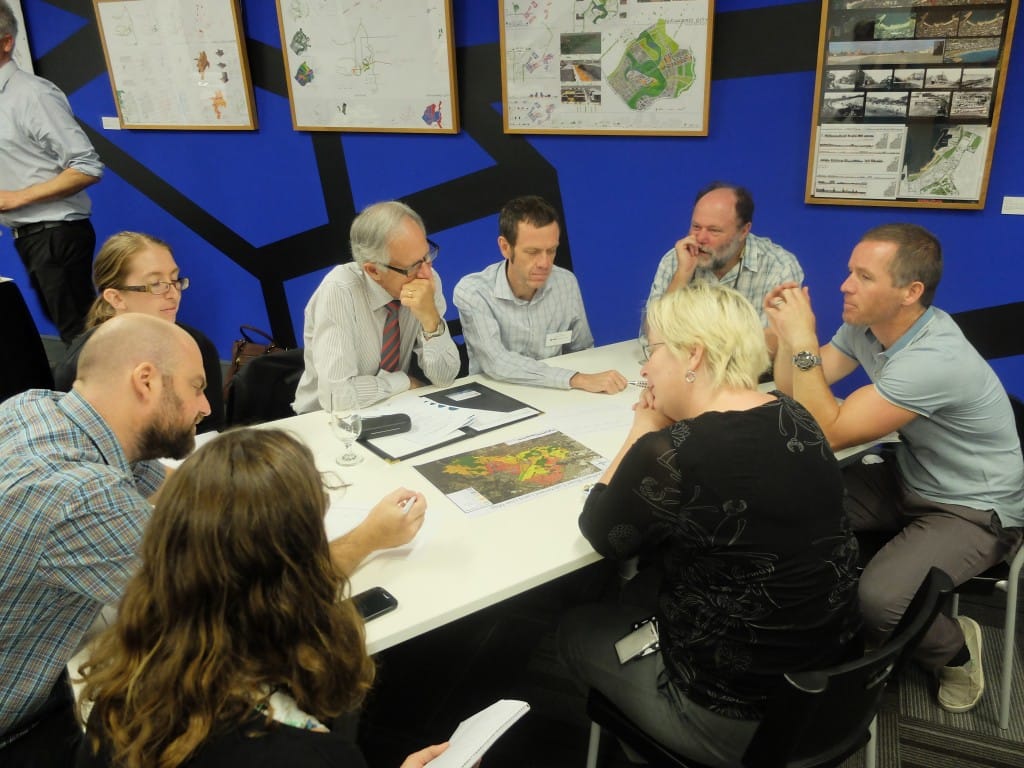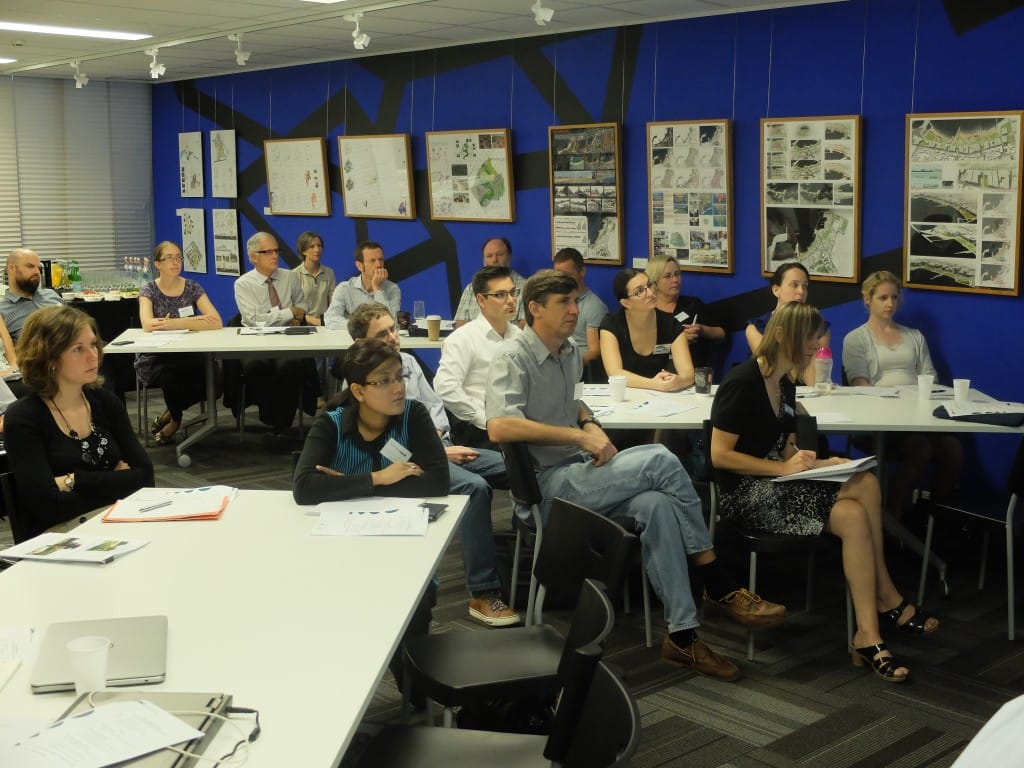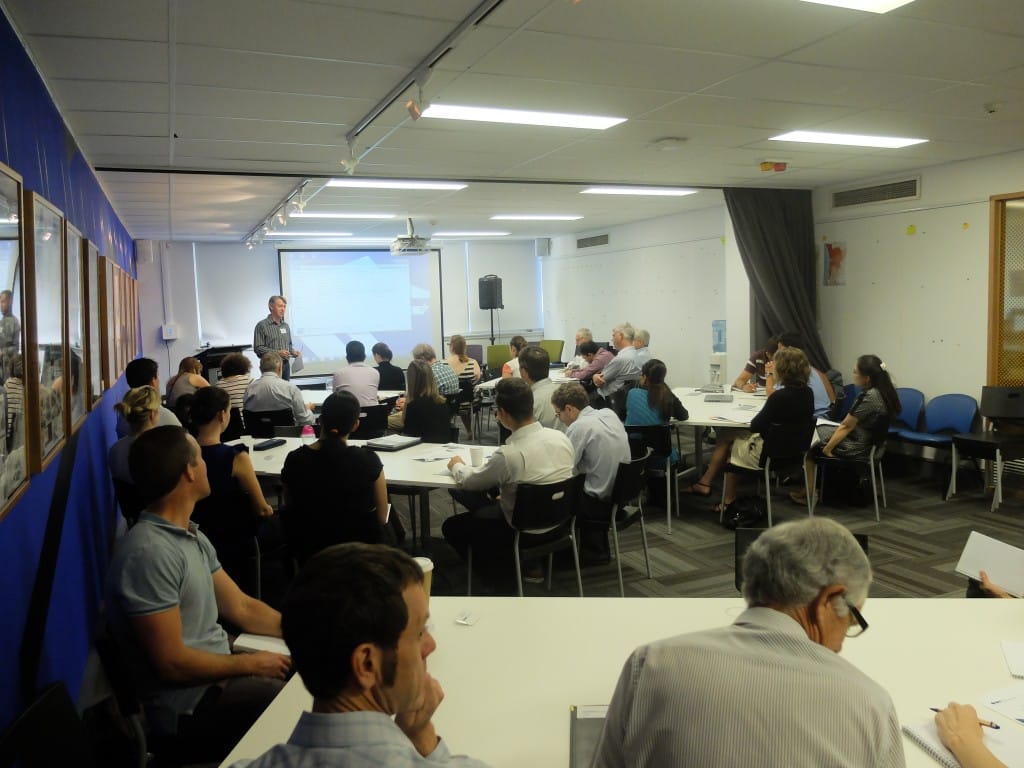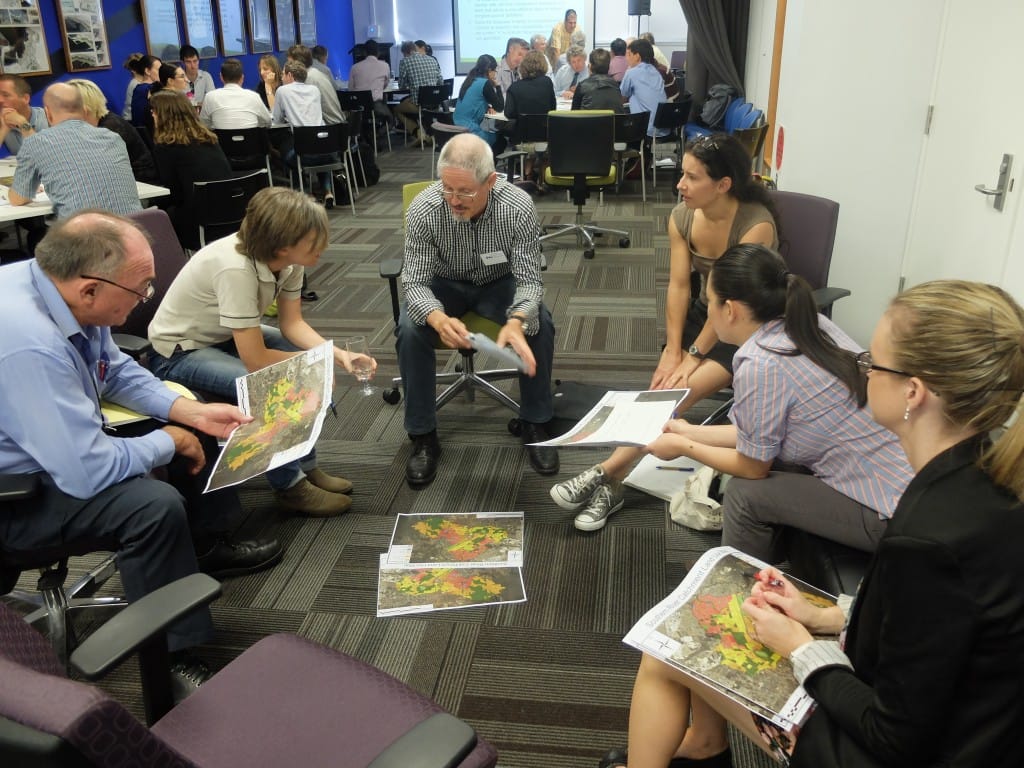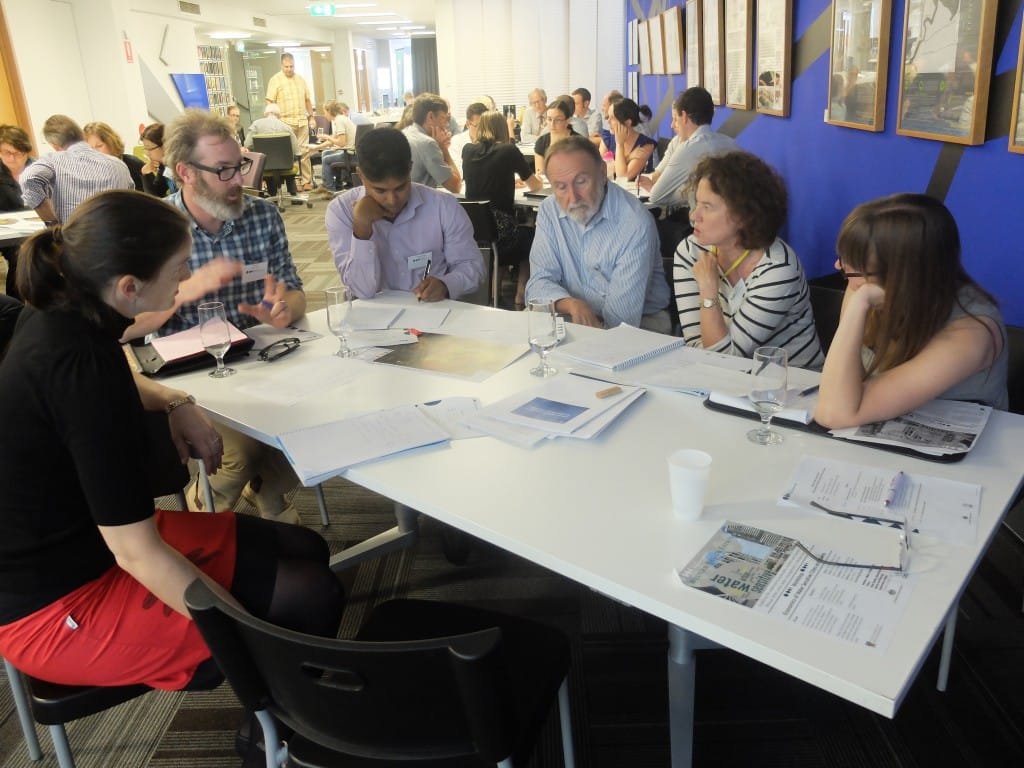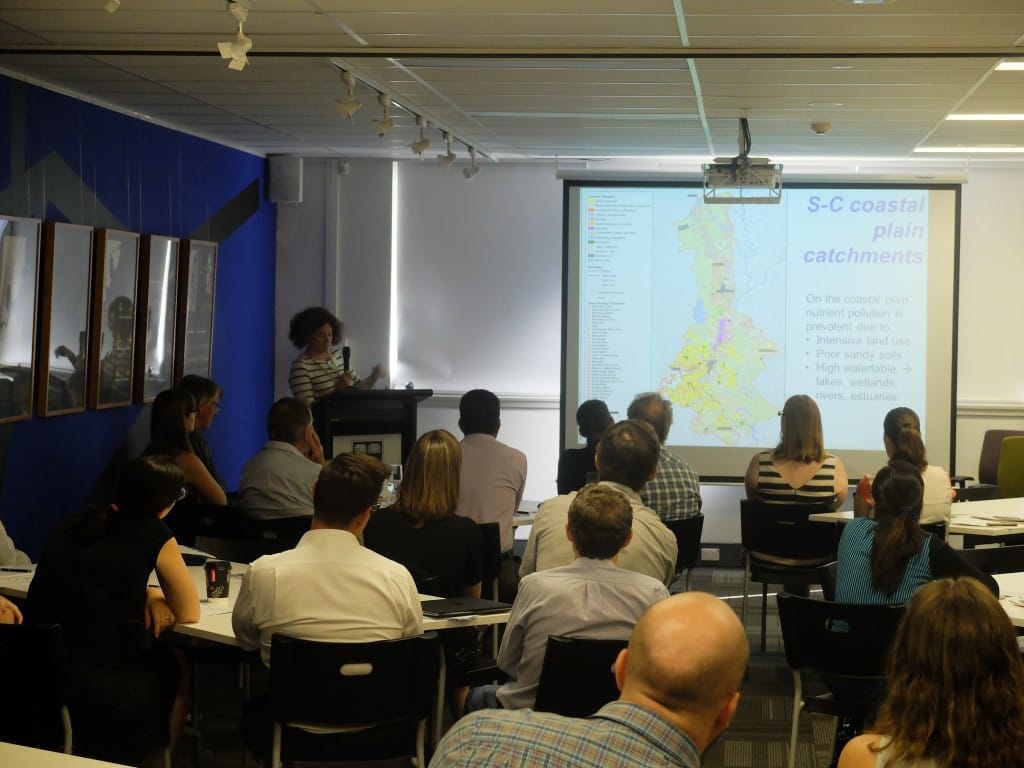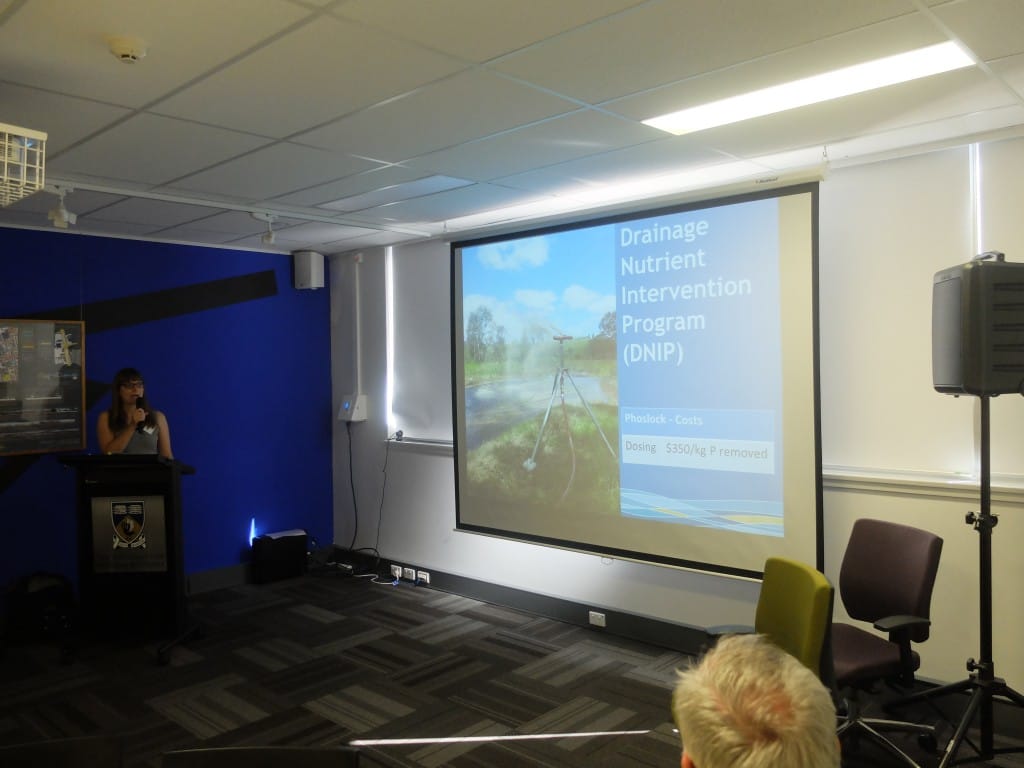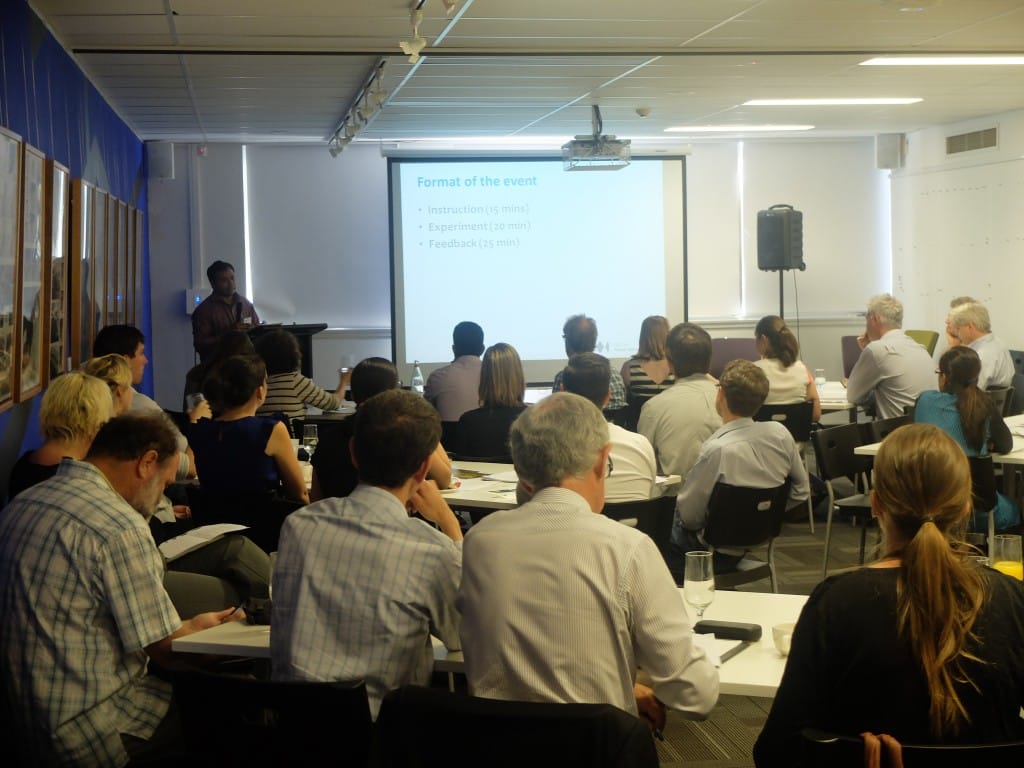CRC for Water Sensitive Cities – Western Region
Ever wondered how economic research can be applied to achieve water sensitive urbanism outcomes?
The Cooperative Research Centre for Water Sensitive Cities (CRCWSC) Western Region gathered with more than 50 local participants to explore some of the key economic research relevant to water sensitive cities and towns. The workshop began with an introduction from Professor David Pannell, CRCWSC Research Project Leader from the Centre of Environmental Economics and Policy (CEEP) at the University of Western Australia. David and the researchers from CEEP have been studying research economics as part of the Society Program on Economic Modelling and Analysis (Project A1).
Following David’s presentation, Ms Ursula Kretzer from the Department of Water outlined the context and issues in relation to the Bannister Creek Living Stream project. Ursula provided an overview of the Bannister Creek site and aspects of work being completed by the Department of Water. Maksym Polyakov from CEEP continued the discussion on Bannister Creek and facilitated a valuation exercise to better understand how much people were willing to add to their bills to develop an improved living stream in their neighbourhood. After a quick tally of results, it was evident that most people would pay an average of $100 on top of their current bills to fund the development.
To commence the discussion on the Southern River catchment, Ms Peta Kelsey from the Department of Water provided insight on the current issues in relation to nonpoint source pollution currently occurring in Southern River. Peta produced current water quality targets and identified waterways within the Western Region most polluted by nutrients, specifically nitrogen and phosphorous. Ms Jennifer Stritzke, from the Swan River Trust, provided the group with an overview of the clean-up programs in place to improve the health and prevent further nutrient pollution of the iconic Swan-Canning Rivers. Ms Stritzke highlighted the costs associated with each program and the benefits to our waterways.
The City of Gosnells’ current work being undertaken to prevent water pollution was presented by Mr Dumal Kannangara. Mr Kannangara identified the prevention methods of water pollution within the council and how these methods will impact future developments within the region. The discussion on the Southern River catchment continued as Ben White, a CRC researcher from CEEP, invited participants to discuss in small groups the best management measures that will be cost effective and reduce nonpoint source pollution within the Southern River catchment.
The workshop moved on to risk attitudes, as Sayed Iftekhar, a CRCWSC researcher from CEEP, conducted a practical demonstration designed to introduce some aspects of modelling risk attitudes and how it may apply in the water industry. A survey was given to each participant that tested their willingness to take risks in three different scenarios. The survey generated significant discussion amongst the participants about how the survey could be improved for the future and further exploration of the risks associated with a decision making process.
Fan Zhang, also a CRCWSC researcher from CEEP, presented current research and issues on non-market valuation and the selection of future case study sites. Fan’s insight into the application of the economic evaluation methods that are relevant to water sensitive urban design paved the way for a lively facilitated discussion on the selection of future non-market valuation case study sites.
The participants enjoyed the high-level discussions, were actively involved in the interactive sessions throughout the workshop and are looking forward to more opportunities to hear about future projects at the CRCWSC Industry Partners Workshop, to be held in Sydney on 2-3 April.
